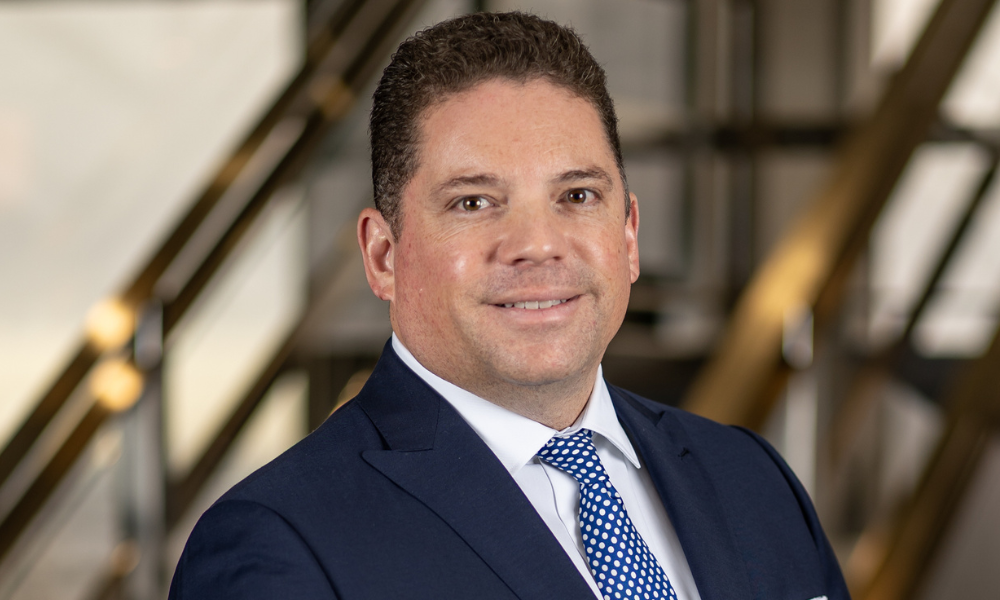Cross-border specialist outlines how he's talking to clients as the new President ratchets up his rhetorical barbs

Donald Trump exploits weaknesses. A social media expert, the newly innagurated US President uses his various accounts like a comedian might use small clubs to test out material for their stadium tour. He’ll find out what material gets a reaction, and push harder on that subject to get what he wants. The trouble for many Canadians is that Trump appears to have gotten exactly the reaction he wants when he started calling us the “51st state.”
Darren Coleman’s clients are intimately aware of the various ways in which US-Canadian relations might impact them. Coleman is a specialist in cross-border wealth management as the senior portfolio management, private client group of Portage Cross Border Wealth Management of Raymond James. He and his clients see the complexities of US-Canada relations firsthand and are keenly aware of how decisions made in Washington and what noise is coming out of Mar-a-Lago. As he works to reassure those clients, he emphasizes the importance of seeing through the bluster to Trump’s policy goals.
“I've been trying to caution clients to remember who we're dealing with. Most of what [Trump] says isn't going to happen. The trick is that we don't know what per cent of what he says will happen,” Coleman says. “But the situation Canada is now in without any effective leadership for months is very disconcerting for many people. The US now has a loud leader with a strong mandate but in Canada we’ve got a little bit of chaos.”
Coleman’s view is that Trump’s bellicose language and threats of tariffs are not aimed at any kind of actual annexation of Canada. Rather, he think Trump is pushing Canada towards a closer economic union with the United States, somewhat akin to the European Union. Coleman’s view is that Trump may push Canada into accepting freer flows of capital and labour between our two countries, which could be of economic benefit to all involved.
The manner by which such a deal comes about could be of importance in the short-term. Trump is hardly a politician in the mould of the stolid European diplomats who laid the foundations of the EU. Trump, Coleman admits, is far more likely to make a lot of noise and display a willingness to destabilize things. That approach, Coleman argues, can actually get more results faster than a more staid, consultative manner. Despite the noise coming out of the US, Coleman argues that Trump has articulated a direction for US-Canada relations while our leadership in Ottawa is “standing around looking at our shoes.”
What Coleman describes as a dearth of leadership in Canada since Justin Trudeau announced his resignation last week has, in his view, made Canada less attractive for foreign and domestic investors, especially when contrasted against the United States.
“If you’re a global investor, which one looks like the better place to put your capital?,” Coleman asks.
Beyond the outlook for foreign investors, Coleman sees many of his own younger clients moving to the US to pursue new career opportunities. With many of Canada’s younger generation of wealth creators considering the US as a better place to build that wealth, Coleman sees potentially dire risks for Canada in the long-term.
It’s that somewhat shaky forward picture that Coleman thinks Trump has struck with his ‘51st state’ comments. The President has prompted a great deal of national hand wringing, as well as genuine concern about what tariffs might potentially mean for our economy. As Coleman reassures his clients the best he can, he is watching for the ways that those tariffs may be formally proposed once Trump takes office next week. He is watching, too, for the form Trump’s immigration policy may take as that has direct bearing on many of his cross-border clients. As other advisors work with their clients, Coleman reiterates the importance of calm and caution despite all the noise.
“This isn’t the first time we’ve had some news that causes stress. This is just the newest iteration of how that,” Coleman says. “I had a conversation with someone asking if the US could really do it, and I asked them if they were around in 1995 when Quebec had a referendum. We’ve already had this existential threat that came internally. There have been numerous things over the years that caused people to be concerned, and I think the right advice for clients most of the time is to do nothing. If you have always been in a high-quality diversified portfolio, selling has always been the wrong thing to do. If you got scared out of your portfolio because of the problem du jour, that was the wrong decision.”



